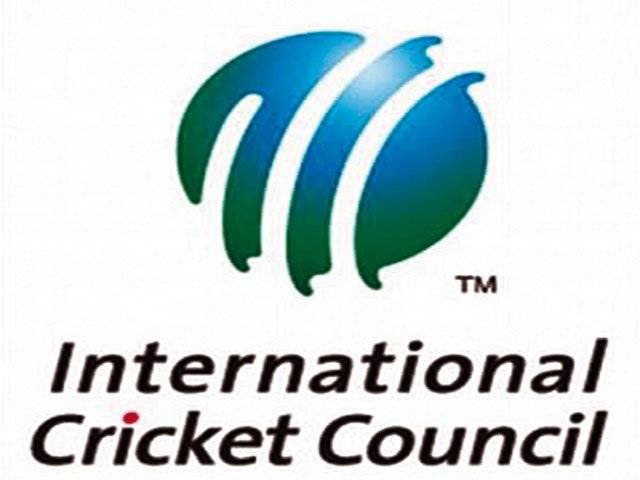HONG KONG (Agencies) - India agreed Monday to a modified version of the controversial Umpire Decision Review System bringing to an end a damaging row which threatened to tear apart international cricket. The International Cricket Council said its chief executives committee (CEC) had unanimously agreed at its Hong Kong conference to make DRS mandatory in all international Tests and one-day matches, Indias cricket authorities announced. The agreed standards will include infra-red cameras and audio-tracking devices, the ICC said in a statement on its website. The CEC also agreed that further independent and expert research will be carried out into ball-tracking technology and its accuracy and reliability. The continued use of ball-tracking technology as a decision-making aid will depend on bilateral agreement between the participating members. The ground-breaking deal means that India will, for the first time, agree for using the DRS in a Test series when they tour England from July. But the world champions released a statement after the meeting insisting that the Hawkeye ball-tracking system remained unacceptable. The BCCI has always expressed its willingness to embrace technology, for the betterment of the game, said Narayanaswami Srinivasan, the president-elect of the Board of Control for Cricket in India, in a statement posted on its website. Hot Spot, the 'thermal imaging technology now available and made mandatory in the DRS, will mostly be used for close catches and edges. But the committee decided that the use of Hawkeye, which tracks the trajectory of the delivery, would continue to depend on agreement between both teams in any match. Lbw decisions will continue to be governed by the on-field umpires. Under the agreement, teams will be allowed to make one incorrect challenge to an on-field umpires decision before all their referrals for that innings are used up. A two-challenge system broadly accepted by most of crickets leading nations was in use at the recent World Cup in the subcontinent, which India won. Dave Richardson, the ICCs general manager for cricket, had said following a two-day meeting of the ICCs cricket committee at Lords in May he was confident of changing Indias mind. India, whose financial clout in world cricket gives them huge bargaining power among the Test-playing nations, have often drawn criticism for what has been seen as their unhealthy influence on the global game. The mandatory terms and conditions for the DRS have been recommended to the executive board for approval on Tuesday, seen as a formality now that Indias crucial backing has been secured. Associate nations such as Ireland and Netherlands may not be dumped out of 2015 cricket World Cup with the ICC CEC recommending that there should be a qualifying tournament for participation in the elite event. The ICC in April had decided to restrict the 2015 World Cup to top 10 nations only, much to the dismay the associate nations who strongly protested the decision. The decision to put a cap on the teams had come due to criticism of the tournaments lengthy format. The CEC stopped short of putting a seal on the number of teams for the tournament but the decision raised hopes of teams like Netherlands, Ireland, Canada and Kenya to feature in the 2015 edition of the event to be held in Australia and New Zealand. ICC president Sharad Pawar has taken up the cause of the minnows by asking its Board to reconsider the decision. In other key decisions, the CEC decided that a captain will now be suspended for two over-rate breaches in a 12-month period in any one format of the game rather than the current position which is three breaches prior to suspension. The CEC, like the ICC Cricket Committee, was concerned at the slow over-rates in Test match cricket and agreed on stricter sanctions against captains for over-rate breaches, the statement said. The abolition of runners, the usage of new balls from each end in one-dayers, and regulation of when the batting and bowling power plays can be taken are among the key recommendations the ICC CEC has made after its meeting. The suggestions, if approved by the ICC Executive Board, will into effect from October 1. Runners have been an established part of cricket for more than a century, in the 2009 Champions Trophy, Andrew Strauss had denied the cramping Graeme Smith a runner leading to controversy. The committee also made a series of proposals to spruce up the one-day game, foremost among them being the decision to use new balls at each end. The white ball loses colour as the innings progresses, making it hard to slight for the batsman, a problem the ICC had to lead to address by replacing the ball after 34 overs.
Friday, April 19, 2024
ICC set to use DRS in tests, ODIs

PTI founder’s interim bail extended in three cases
12:00 PM | April 19, 2024
US encourages Pakistan to prioritise and expand economic reforms
11:42 AM | April 19, 2024
Hafiz Naeem takes oath as JI chief, announces anti-government movement
11:39 AM | April 19, 2024
Faizabad commission report leaked, it should be made public now, suggests Abbasi
11:11 AM | April 19, 2024
A Tense Neighbourhood
April 19, 2024
Dubai Underwater
April 19, 2024
X Debate Continues
April 19, 2024
Hepatitis Challenge
April 18, 2024
IMF Predictions
April 18, 2024
Kite tragedy
April 19, 2024
Discipline dilemma
April 19, 2024
Urgent plea
April 19, 2024
Justice denied
April 18, 2024
AI dilemmas unveiled
April 18, 2024
ePaper - Nawaiwaqt
Advertisement
Nawaiwaqt Group | Copyright © 2024





